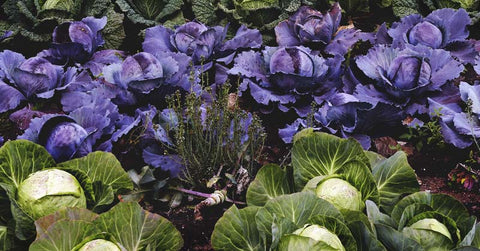Adding fruit trees to your garden can be a rewarding experience, providing you with fresh, flavorful produce right from your backyard. However, selecting the right fruit trees requires careful consideration of various factors to ensure success. In this blog, we'll explore the key factors to consider when choosing fruit trees for your garden, from climate suitability and space requirements to pollination needs and maintenance considerations. By understanding these factors, you can make informed decisions and create a bountiful orchard that thrives for years to come.The following content also has some reference value for raised garden beds.
Climate Suitability
The first and most crucial factor to consider when choosing fruit trees is climate suitability. Different fruit trees have specific temperature, humidity, and sunlight requirements for optimal growth and fruit production. Before selecting fruit trees for your garden, research the USDA hardiness zone and local climate conditions to ensure compatibility with the trees you choose. Consider factors such as frost dates, chill hours, and heat tolerance to select fruit trees that are well-suited to your region's climate.
Space Requirements
Another important consideration when choosing fruit trees is space requirements. Fruit trees vary in size, shape, and growth habits, so it's essential to assess your available space and select trees that fit within your garden layout. Consider factors such as mature tree height and spread, root system size, and planting distance requirements to ensure adequate spacing between trees and other garden elements. Dwarf and semi-dwarf varieties are ideal for small gardens or containers, while standard-sized trees require more space to accommodate their larger size.

Pollination Needs
Many fruit trees require cross-pollination with compatible varieties to produce fruit successfully. When selecting fruit trees for your garden, consider the pollination needs of each tree and ensure that you plant compatible varieties within proximity for optimal fruit sets. Some fruit trees are self-pollinating and do not require cross-pollination, while others require pollinators such as bees or other insects to transfer pollen between flowers. Be sure to research the pollination requirements of each fruit tree and plant accordingly to ensure successful fruit production.
Fruit Quality and Taste
When choosing fruit trees for your garden, consider the quality and taste of the fruit they produce. Different varieties of fruit trees can vary significantly in flavor, texture, sweetness, and juiciness, so it's essential to select varieties that appeal to your personal preferences. Consider factors such as fruit size, color, ripening time, and flavor profile when making your selection. Visit local farmers' markets or orchards to taste different varieties of fruit and determine which ones you enjoy most before making your final decision.
Maintenance Requirements
Fruit trees require ongoing care and maintenance to ensure healthy growth and abundant fruit production. When choosing fruit trees for your garden, consider the maintenance requirements of each variety and assess whether you have the time, resources, and expertise to care for them properly. Factors such as pruning needs, pest and disease resistance, watering requirements, and fertilization schedules should all be taken into account when selecting fruit trees for your garden. Choose varieties that are well-suited to your level of gardening experience and available time commitment to ensure successful cultivation and harvest.

Popular Fruit Tree Varieties
Several popular fruit tree varieties are well-suited to home gardens and offer delicious fruit and attractive foliage throughout the growing season. Some popular options include:
- Apple Trees: Apple trees are versatile and adaptable, making them suitable for a wide range of climates and growing conditions. Choose from a variety of apple cultivars with different flavors, textures, and uses, including eating fresh, baking, and cider making.
- Citrus Trees: Citrus trees, such as oranges, lemons, limes, and grapefruits, thrive in warm, sunny climates and produce flavorful, vitamin-rich fruit year-round. Consider dwarf citrus varieties for container gardening or small spaces.
- Peach Trees: Peach trees are prized for their sweet, juicy fruit and beautiful spring blossoms. Choose from freestone or clingstone varieties and select cultivars with low chilling requirements for mild winter climates.
- Cherry Trees: Cherry trees produce delicious, antioxidant-rich fruit that is perfect for eating fresh, baking, or preserving. Choose from sweet or sour cherry varieties and select self-pollinating cultivars for small gardens or backyard orchards.
- Pear Trees: Pear trees are easy to grow and produce sweet, crisp fruit that is perfect for eating fresh or cooking. Choose from a variety of pear cultivars with different flavors, textures, and harvest times.

Conclusion
In conclusion, choosing the right fruit trees for your garden requires careful consideration of various factors, including climate suitability, space requirements, pollination needs, fruit quality and taste, and maintenance requirements. By understanding these factors and selecting fruit trees that align with your garden's conditions and your personal preferences, you can create a bountiful orchard that provides you with fresh, flavorful fruit for years to come. Whether you're planting a small backyard orchard or a larger fruit garden, thoughtful selection and planning are key to success in growing fruit trees. With proper care and attention, your fruit trees will thrive and reward you with a fruitful harvest season after season.









